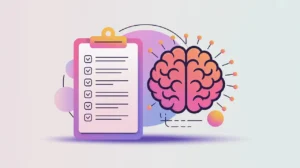Importance of Knowledge Sovereignty and Indigenous Data Sovereignty
Knowledge Sovereignty and Indigenous Data Sovereignty refer to the rights of communities, especially Indigenous peoples, to govern, control, and benefit from the knowledge and data that originate from them. These principles affirm that knowledge is not just information but also cultural heritage, identity, and power. Their importance today lies in the risks posed by AI and digital systems that extract community knowledge without consent or return, reinforcing historic inequities.
For social innovation and international development, these concepts matter because mission-driven organizations must ensure that technology strengthens, rather than undermines, the agency and dignity of communities whose data and knowledge are used.
Definition and Key Features
Knowledge sovereignty emphasizes the autonomy of communities to define how their knowledge is used, shared, and preserved. Indigenous data sovereignty is a related but distinct framework developed by Indigenous leaders, scholars, and organizations worldwide. It is grounded in principles such as OCAP® (Ownership, Control, Access, Possession) in Canada and the CARE Principles (Collective Benefit, Authority to Control, Responsibility, Ethics).
These are not the same as open data approaches, which emphasize accessibility without always addressing power or consent. Nor are they equivalent to intellectual property regimes, which often fail to protect collective and culturally specific forms of knowledge. Sovereignty frameworks center community rights and governance.
How this Works in Practice
In practice, Indigenous data sovereignty may involve communities governing health data collected during research, setting rules for its storage, access, and use. Knowledge sovereignty might include protocols for sharing cultural knowledge, ensuring it is not misrepresented or exploited in AI systems. Organizations engaging in co-creation must respect community governance, negotiate data agreements, and commit to reciprocity.
Challenges include navigating tensions between global research norms and local sovereignty, addressing power imbalances in partnerships, and ensuring that sovereignty frameworks are respected in cross-border contexts. Failure to respect these principles risks reinforcing colonial patterns of extraction and harm.
Implications for Social Innovators
Knowledge sovereignty and Indigenous data sovereignty are critical in mission-driven work. Health programs must ensure Indigenous communities retain control over genomic or clinical data. Education initiatives must respect community knowledge systems rather than imposing external curricula. Humanitarian agencies must safeguard data collected from displaced populations, ensuring communities maintain authority over its use. Civil society groups advocate for sovereignty frameworks as essential to decolonizing AI and data practices.
By upholding knowledge sovereignty and Indigenous data sovereignty, organizations protect rights, strengthen equity, and ensure AI and digital innovation contribute to community well-being on community terms.







